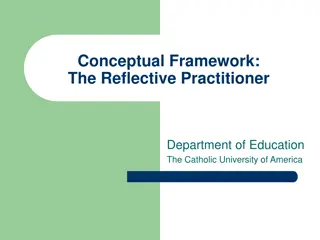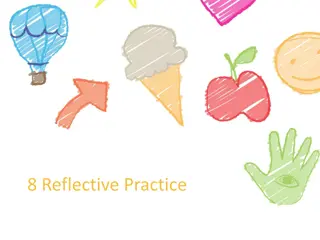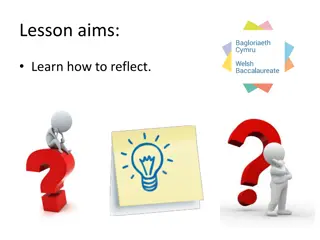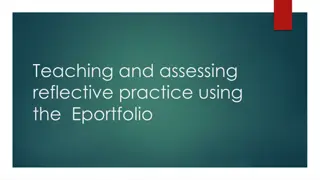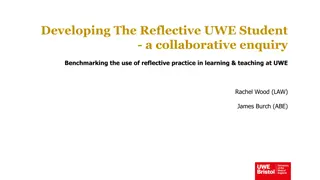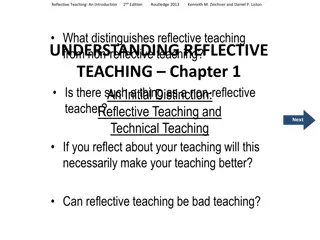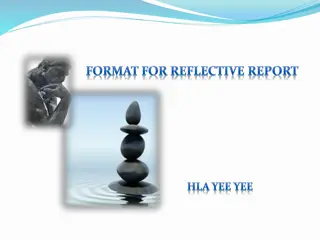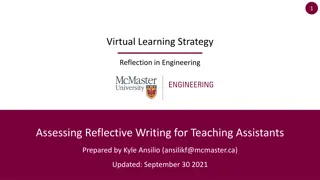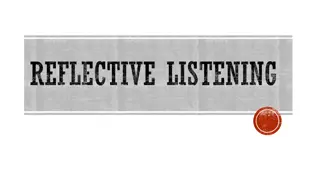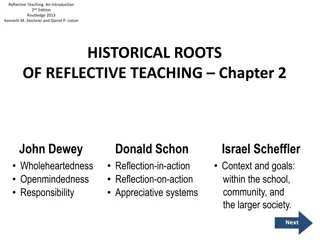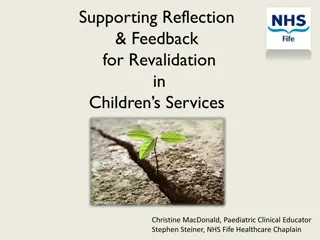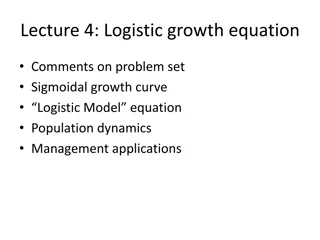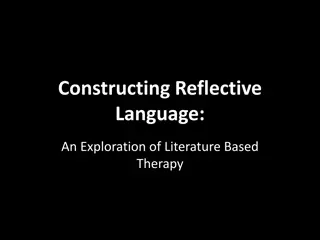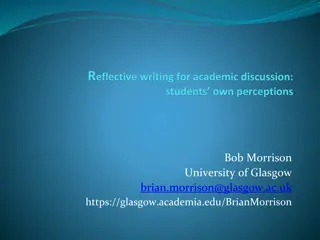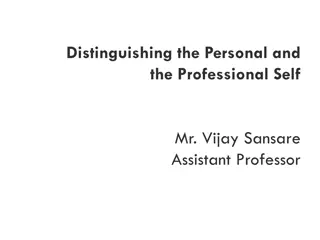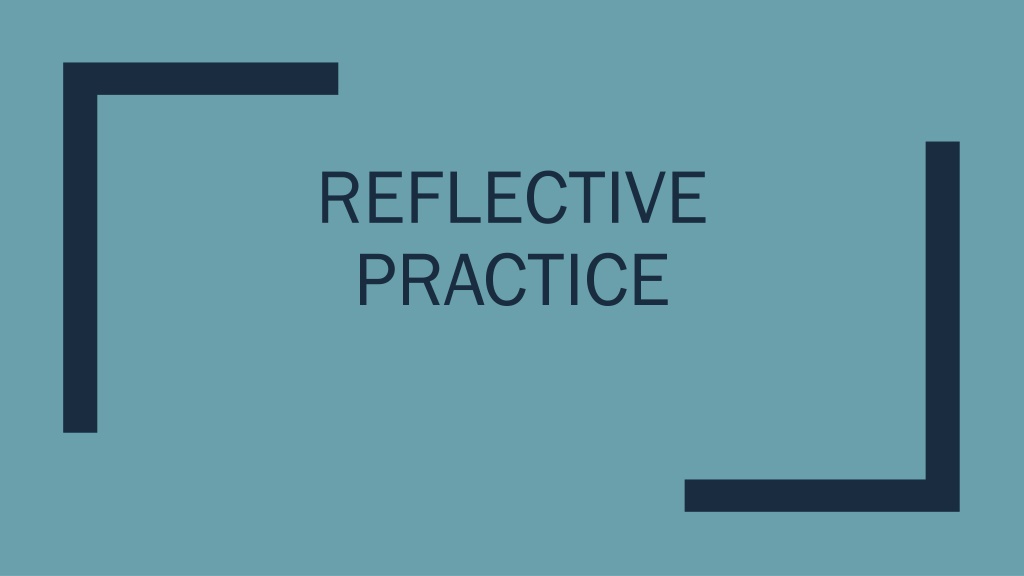
The Importance of Reflective Practice in Continuous Learning
Explore the significance of reflective practice in fostering continuous learning and professional development. Discover the origins, benefits, and key concepts related to reflective practice, including how it bridges theory and practice to enhance understanding and growth.
Uploaded on | 0 Views
Download Presentation

Please find below an Image/Link to download the presentation.
The content on the website is provided AS IS for your information and personal use only. It may not be sold, licensed, or shared on other websites without obtaining consent from the author. Download presentation by click this link. If you encounter any issues during the download, it is possible that the publisher has removed the file from their server.
E N D
Presentation Transcript
REFLECTIVE PRACTICE
Share with a partner why this rock called to you
Reflective Practice Reflective practice Reflective practice is the ability to reflect on one's actions so as to engage in a process of continuous learning.
Key Rationale Reflective practice is that experience alone does not necessarily lead to learning; deliberate reflection on experience is essential.
Share an experience that was helped by reflection
The Advantages of Reflective Practice bring together theory and practice A person who reflects throughout his or her practice is not just looking back on past actions and events, but is taking a conscious look at emotions, experiences, actions, and responses, and using that information to add to his or her existing knowledge base and reach a higher level of understanding. important source of personal professional development and improvement
Who Invented Reflective Practice John Dewey- Educator 1859-1952 History and background Donald Sch n's 1983 book The Reflective Practitioner introduced concepts such as reflection-on-action and reflection-in-action Kurt Lewin and Jean Piaget were developing relevant theories of human learning and development Precursors of reflective practice in ancient texts such as Buddhist teachings
Donald Schn In Action On Action
Story About the Home Visit that Describes the Reflection Cycle
Are you a person who goes to reflection easily or do you have to be encouraged?
How to increase Personal Reflection Ask open ended questions Add Pauses Wait for responses to questions Add clarifying questions Clarify understanding When things don t feel right or seem right .seek to understand
How Could knowledge of Reflective Practice Help increase positive outcomes in children and families? Increase your ability to be an effective helper for the families your serve? Increase your knowledge and skills in your current work?




